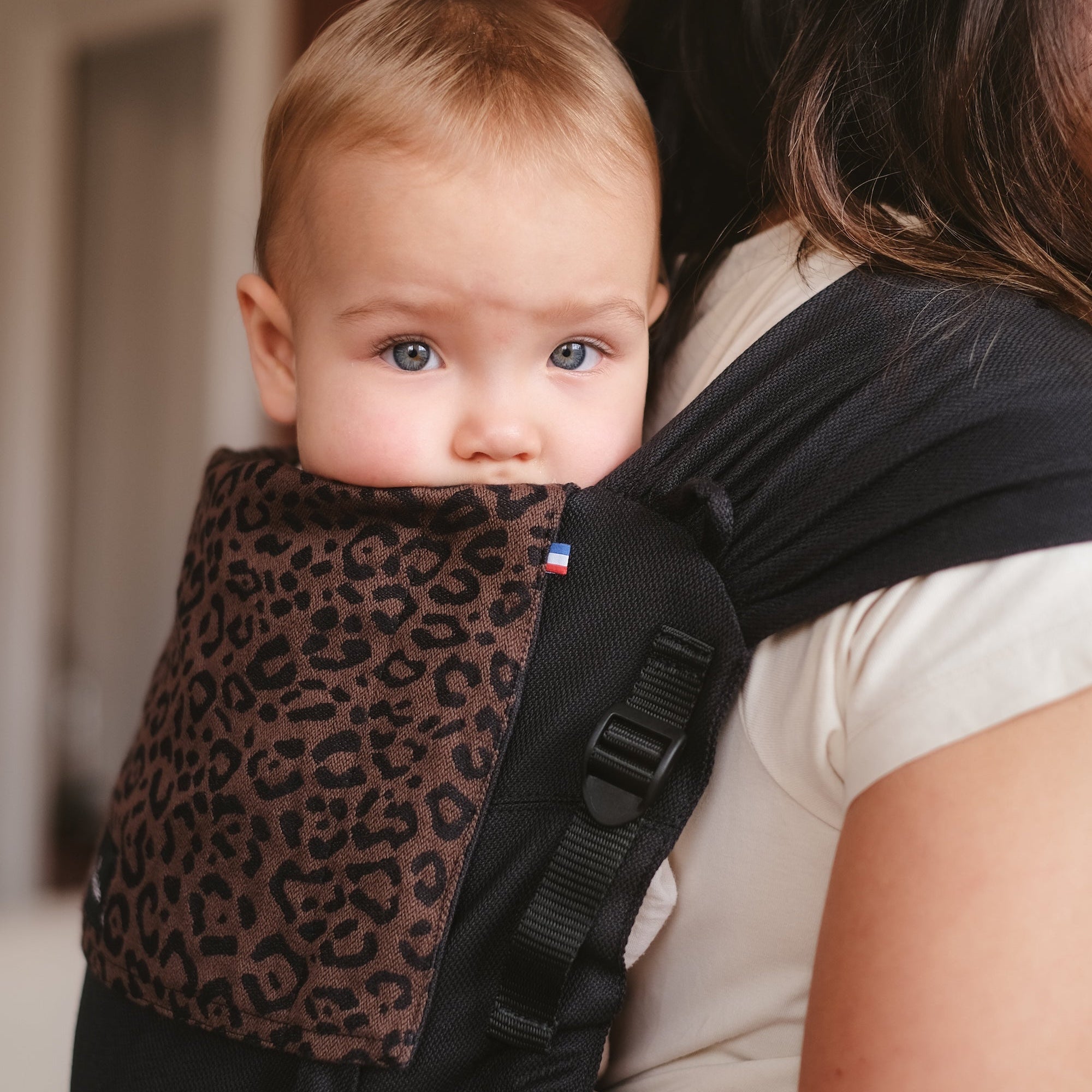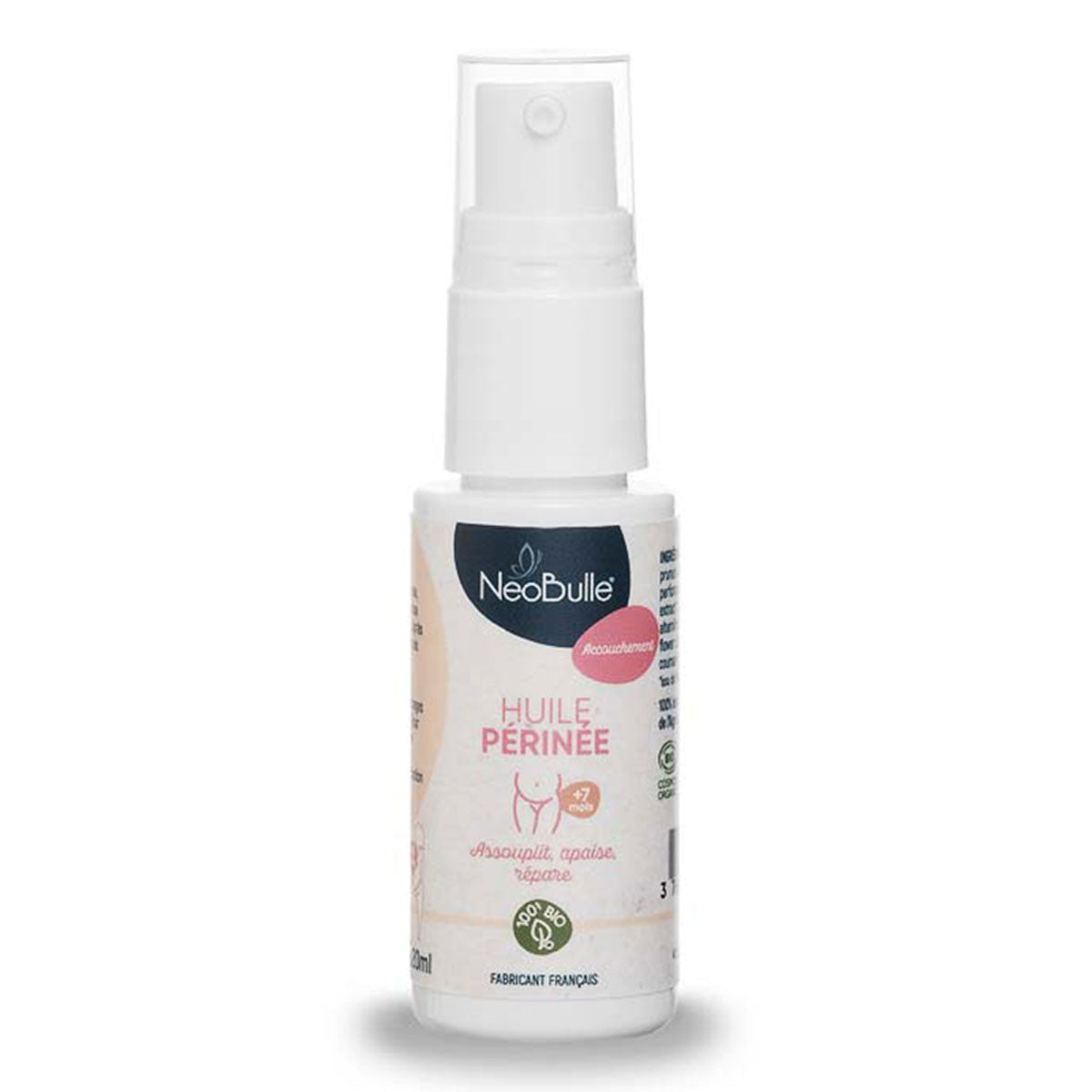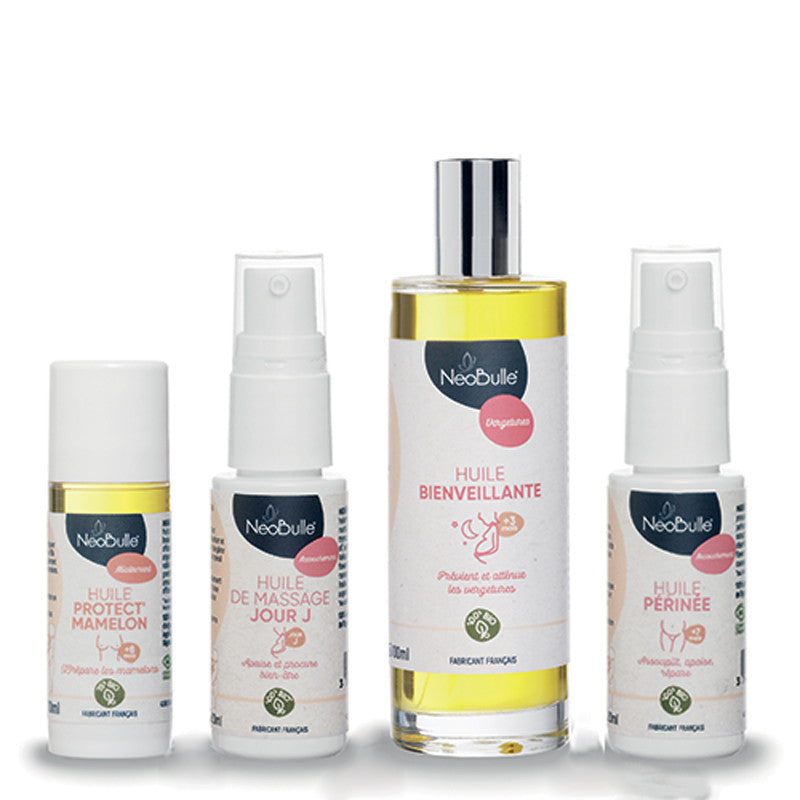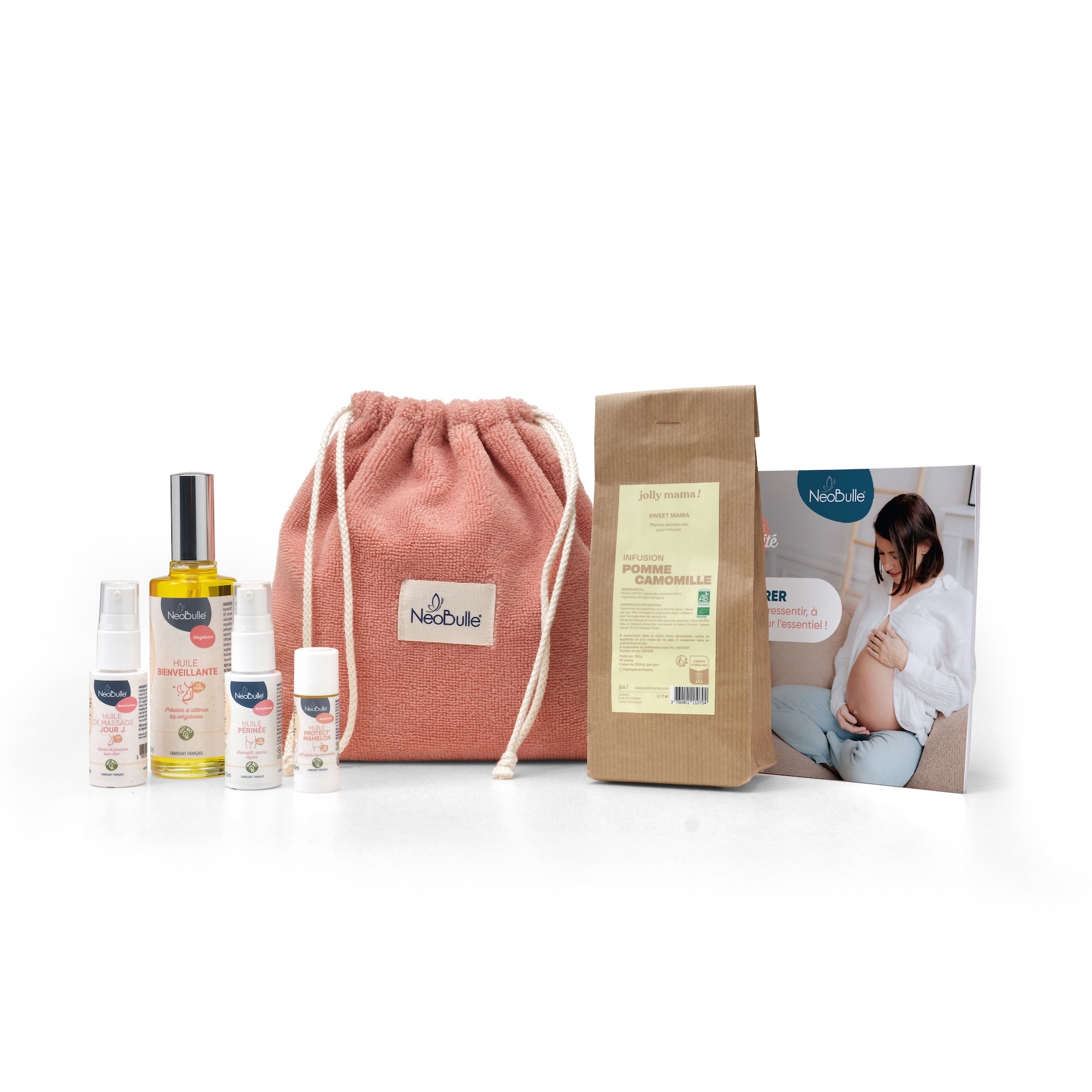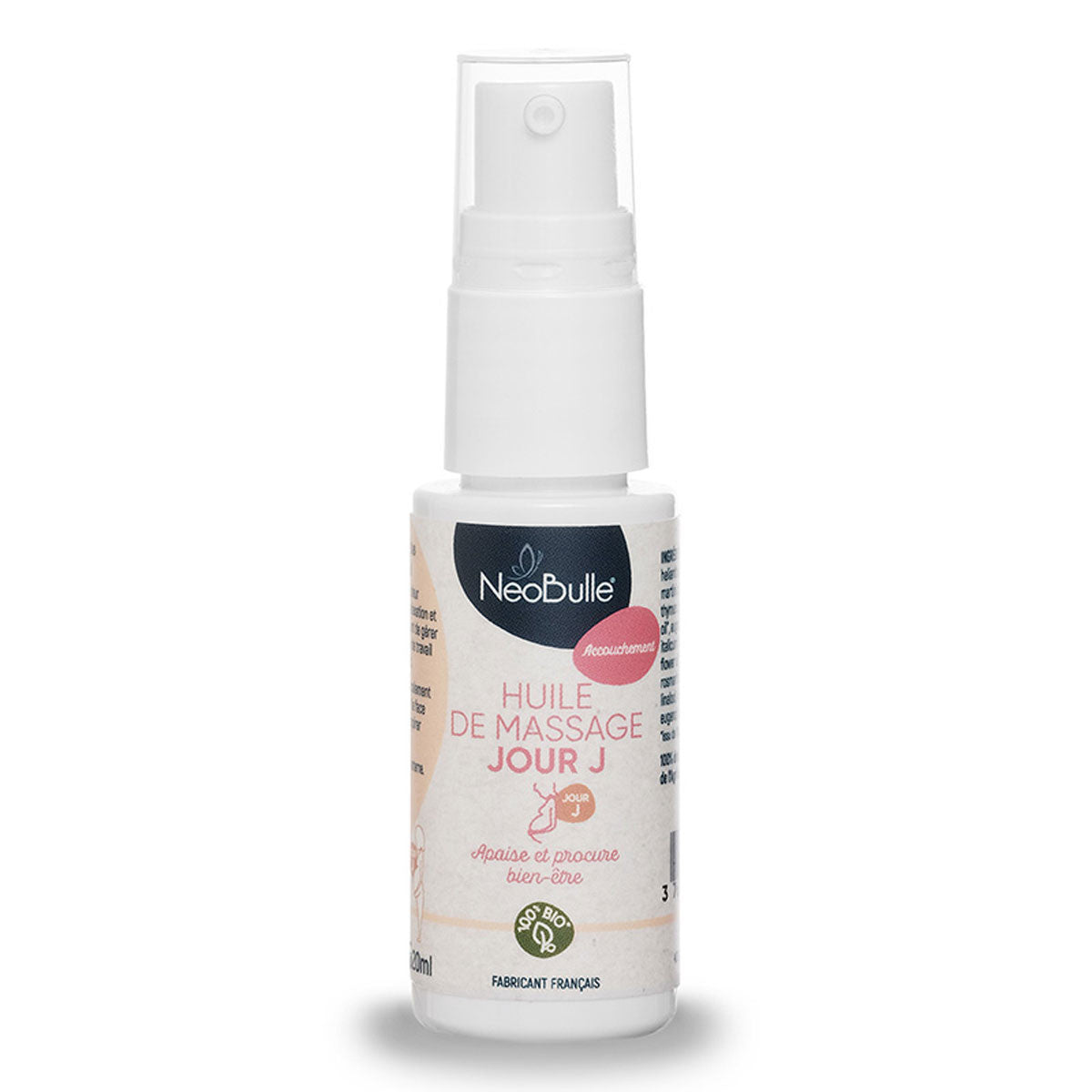How to take care of your perineum?
This is a highly important topic for a woman's life. The perineum is a universe in itself, comprising a constellation of muscles and ligaments that are particularly stressed during pregnancy.
This precious instrument deserves special attention during these 9 months. The benefit of taking care of it is mainly to avoid long-term problems, and to greatly reduce the chances of episiotomy or tearing during childbirth.
Your perineum, your pregnancy, your baby… and your woman’s life
Your perineum supports the weight of your uterus, baby, and amniotic fluid. Under this constant pressure, all these ligaments and muscles stretch and lose their elasticity. Especially if you are expecting twins.
When the baby is born, your perineum will need flexibility and tonicity. Pelvic floor re-education is often discussed. It is usually necessary, but if your perineum is too damaged, it will not regain all its capabilities.
The perineum, when it has lost its elasticity, is the origin of incontinence, a taboo subject that is rarely discussed. Yet, it is a fairly common problem among women. Not to mention that the perineum plays an important role in sexual pleasure.
Physical activities? Yes, but gentle ones…
If you have chosen prenatal yoga as a preparation for childbirth, you are already taking care of your perineum. If you have chosen swimming, that’s pretty good too. And if you regularly walk, it’s even better!
Generally speaking, gentle physical activities that involve breathing and the pelvis are recommended. Especially since they are good for morale and gradually prepare the rest of the body for childbirth.
However, some sports should be avoided. Especially those that exert natural pressure on the perineum. All jumping sports are broadly discouraged for pregnant women. Aerobics or long-distance running are also not in their favor.
If you ever need to carry heavy loads at work, or are used to carrying your older children, it’s best to delegate. Colleagues, friends, or loved ones… A little help?
Exercises, from the fourth to the eighth month
At the beginning of the second trimester, preparation sessions for childbirth begin. The midwife raises awareness about the perineum and gives you some advice. This is a good opportunity to ask questions. Practicing these exercises regularly will be key.
Massages, starting from the seventh or eighth month
But how to massage the perineum? We provide the instructions right below!
First, wash your hands to avoid germs. Take advantage of this opportunity to enjoy a few minutes of calm conducive to relaxation so you won’t be disturbed.
Whether kneeling or lying in bed with your back against the wall, sit comfortably to start the massage, which, to be effective, should last 5 to 10 minutes.
Now is the time to take the massage oil. With your thumb turned and pressed down towards the bottom of the vagina, perform rocking movements from left to right, then from right to left, applying enough pressure. Don't hesitate to watch videos online.
During the last two months before the baby's arrival, it is recommended to massage yourself 2 to 4 times a day. This will REALLY make a difference during childbirth!
To assist you, we have designed Néobulle's perineum oil, studied to take care of your perineum before and after pregnancy.
After birth, exercises again
One or two months after the birth of your beautiful baby, the postnatal consultation allows you to check in with the midwife or gynecologist. They will prescribe about ten sessions of perineal re-education. Moreover, even in the case of a C-section, re-education is recommended.
While waiting for this appointment, you can start gentle exercises to do alone for a few minutes each day.
Sitting on the edge of a chair, start by inhaling through your nose, then contract your anus, vagina, and abdomen one after the other for about ten seconds before exhaling.
It's a good way to get back on track and reconcile with your body.
Néobulle perineum oil
At Néobulle, a brand committed to the well-being of babies, a massage oil has been created that expectant mothers love, especially for its pleasant smell and effectiveness.
This 100% natural and organic soothing oil prepares expectant mothers for the birth of their baby. It softens the perineum to facilitate the passage of the little one by increasing the effectiveness of massages.
After birth, the passage of the baby sometimes causes a small swelling (edema), painful scratches, a small tear, or even an episiotomy. Néobulle oil, used at this moment with gentle application and not massage, provides relief and quick healing.
In case of C-section, it helps to heal and fade hematomas if present. An essential to have!
